Filter by
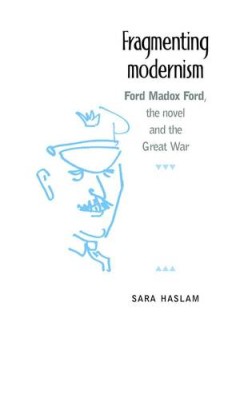
Fragmenting Modernism : Ford Madox Ford, the Novel and the Great War
Fragmenting Modernism is about Ford Madox Ford, a hero of the modernist literary revolution. Ford is a fascinating and fundamental figure of the time; not only because as a friend and critic of Ezra Pound and Joseph Conrad, editor of the English Review and author of The Good Soldier, he shaped the development of literary modernism. But as the grandson of Ford Madox Brown, and son of a German mu…
- Edition
- -
- ISBN/ISSN
- 9780719060557
- Collation
- -
- Series Title
- -
- Call Number
- 920 HAS f
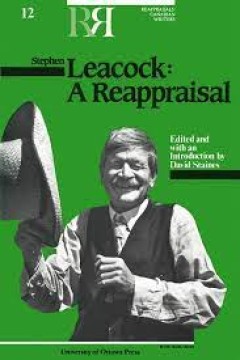
Stephen Leacock : A Reappraisal
“Personally,” Stephen Leacock declared in his preface toSunshine Sketches of a Little Town(1912), “I would sooner have writtenAlice in Wonderlandthan the wholeEncyclopedia Britannica.” Yet the worlds represented byAliceand theEncyclopedia, seemingly light years apart, are central to an understanding, appreciation, and assessment of the many worlds that commanded the attention of Stephen…
- Edition
- -
- ISBN/ISSN
- 9780776601809
- Collation
- 184 halaman
- Series Title
- Reappraisals: Canadian Writers
- Call Number
- 800 STA s
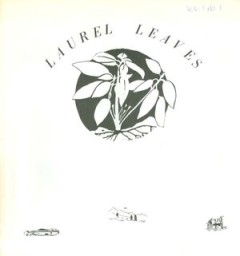
Laurel Leaves
aurel Leaves was a periodical published semi-annually from 1973-1975, no publication in 1976, and annually from 1977-1979 by the Appalachian Consortium. The 1979 issue is not included in this digital version. The newsletter typically focused on the arts, including music, literary, and art works; and on social conditions of the Southern Appalachian region. However, this collections also includes…
- Edition
- Vol. 1
- ISBN/ISSN
- -
- Collation
- -
- Series Title
- -
- Call Number
- 498
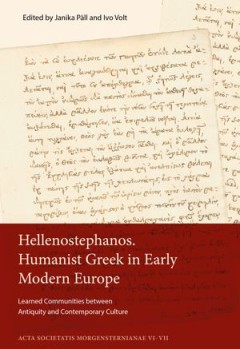
Hellenostephanos : Humanist Greek in Early Modern Europe
The rebirth of Ancient Greek in Europe was promoted by Humanist education and ideas to such an extent that we can consider the Greek language as a formative element of Humanist culture. Next to Latin, the default common language, a Humanist has to know and use Greek, because he is not, cannot and will not be a barbarian: barbaros ou pelomai, as Julius Caesar Scaliger claimed in his verses in 16…
- Edition
- -
- ISBN/ISSN
- 9789949777587
- Collation
- -
- Series Title
- -
- Call Number
- 900 PAL h
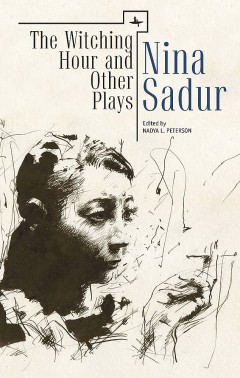
The Witching Hour and Other Plays
Nina Sadur, the playwright, occupies a prominent place in the Soviet/Russian drama pantheon of the 1980s and 1990s, a group that has with few exceptions been generally ignored by the Western literary establishment. The plays included in this volume offer some of Sadur's most influential works for the theater to the English-speaking audience for the first time. The collection will appeal to read…
- Edition
- -
- ISBN/ISSN
- 9781618114006
- Collation
- -
- Series Title
- -
- Call Number
- 920 SAD w
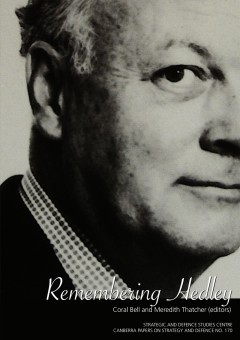
Remembering Hedley
Remembering Hedley commemorates the life of Hedley Bull (1932–85), a pivotal figure in the fields of international relations and strategic studies. Its publication coincides with the official opening on 6 August 2008 of the Hedley Bull Centre at The Australian National University in Canberra.
- Edition
- -
- ISBN/ISSN
- 9781921536076
- Collation
- -
- Series Title
- -
- Call Number
- 900 REM
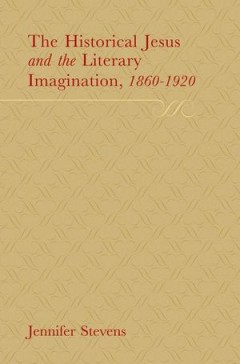
The Historical Jesus and the Literary Imagination 1860-1920
Fictional reconstructions of the Gospels continue to find a place in contemporary literature and in the popular imagination. Present day writers of New Testament fiction and drama are usually considered as part of a tradition formed by mid-to-late-twentieth-century authors such as Robert Graves, Nikos Kazantzakis and Anthony Burgess. This book looks back further to the late-nineteenth and early…
- Edition
- -
- ISBN/ISSN
- 9781846314704
- Collation
- -
- Series Title
- -
- Call Number
- 900 STE h
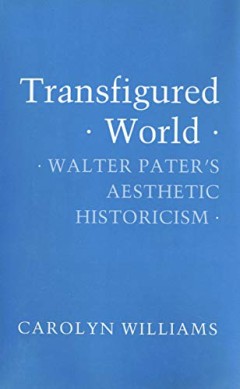
Transfigured World : Walter Pater's Aesthetic Historicism
Exploring the intricacy and complexity of Walter Pater’s prose, Transfigured World challenges traditional approaches to Pater and shows precise ways in which the form of his prose expresses its content. Carolyn Williams asserts that Pater’s aestheticism and his historicism should be understood as dialectically interrelated critical strategies, inextricable from each other in practice. Willi…
- Edition
- -
- ISBN/ISSN
- 9781501707247
- Collation
- -
- Series Title
- -
- Call Number
- 900 WIL t
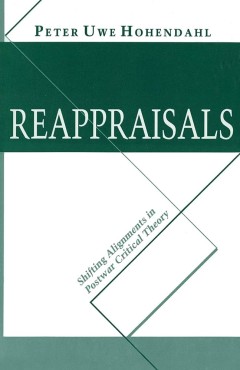
Reappraisals : Shifting Alignments in Postwar Critical Theory
Reappraisals is a provocative account of the development of modern critical theory in Germany and the United States. Focusing on the period since World War II, Peter Uwe Hohendahl explores key debates on the function of critical theory, illuminating the diverse positions and alliances among the participants. Bringing together six essays, as well as new introductory and concluding chapters, Hohe…
- Edition
- -
- ISBN/ISSN
- 9780801497063
- Collation
- -
- Series Title
- -
- Call Number
- 100 HOH r
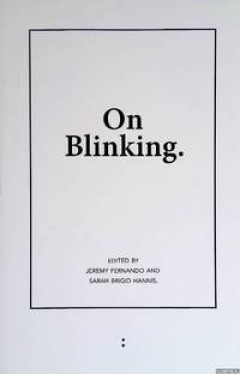
On Blinking
On Blinking opens a dossier on seeing. It looks not only to the epistemological sense of what it means to see or the hermeneutical sense of what is the meaning of that which is seen but attends to various sites of knowledge – photography, literature, and philosophy. And in doing so, it questions the privileging of presence and sight in Western thought. Thus, this book, through the essays – …
- Edition
- -
- ISBN/ISSN
- 9789081709163
- Collation
- 174
- Series Title
- -
- Call Number
- Literary essays
 Computer Science, Information & General Works
Computer Science, Information & General Works  Philosophy & Psychology
Philosophy & Psychology  Religion
Religion  Social Sciences
Social Sciences  Language
Language  Pure Science
Pure Science  Applied Sciences
Applied Sciences  Art & Recreation
Art & Recreation  Literature
Literature  History & Geography
History & Geography